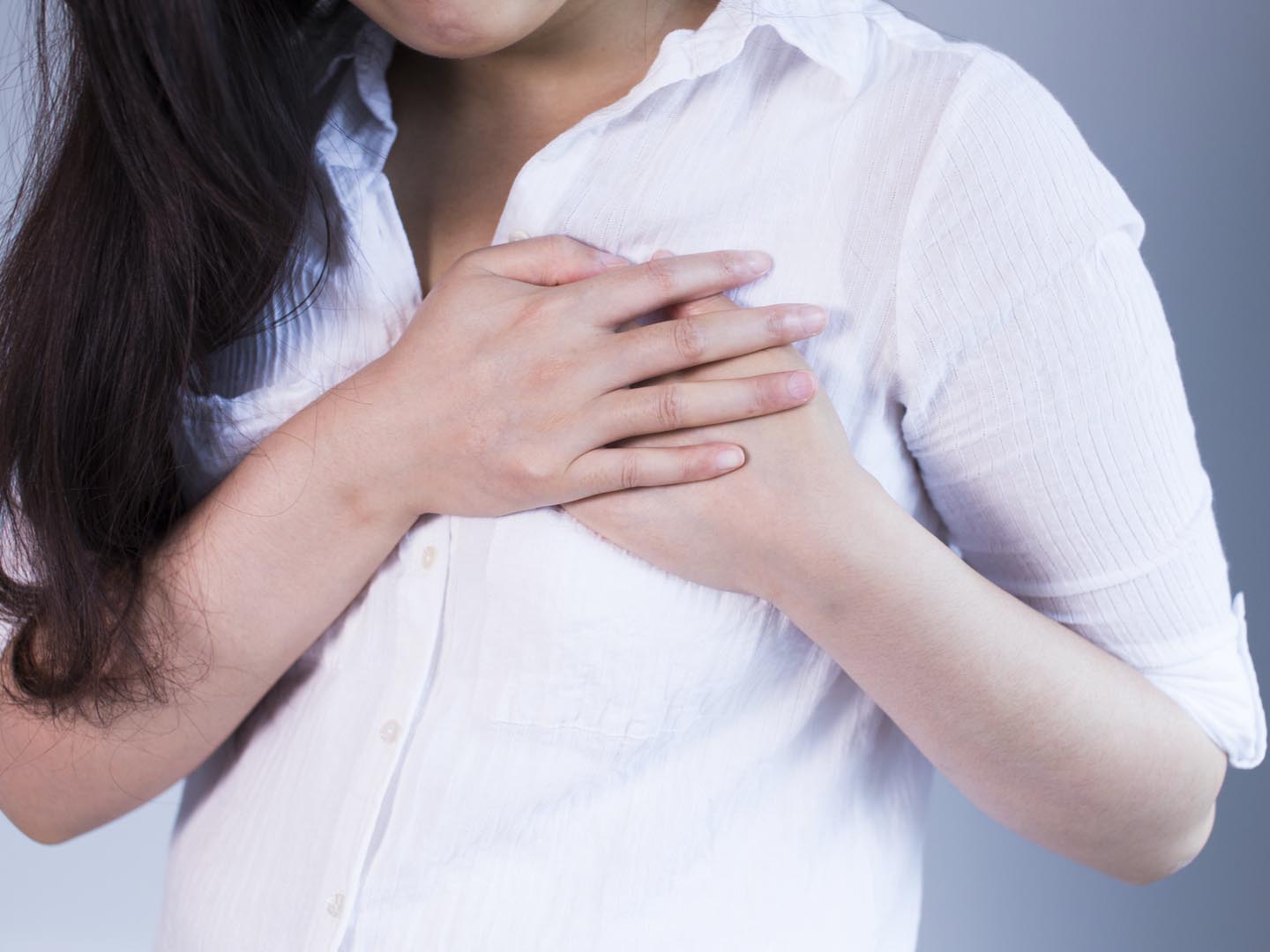Mastitis

What is mastitis?
Mastitis is an infection of the breast. It often develops when a milk duct becomes blocked, preventing milk from flowing freely. It usually occurs in lactating women, and almost always in mothers who are breastfeeding, especially in the first 6 to 12 weeks post-partum. However, in rare circumstances the infection can occur in the absence of breastfeeding.
What are the symptoms?
Signs of mastitis include soreness, swelling, warmth and redness of the breast. Although only a part of the breast may be involved, it is often quite painful to breastfeed on the affected side, leading mothers to prematurely cease breastfeeding. The first signs of mastitis can be mistaken for the flu with general weakness, chills and fever over 101° F (37°C) being common. If symptoms become progressively worse, the clogged duct can actually progress to an abscess that may require incision and draining.
What are the causes?
Mastitis can stem from cracked nipples, which may be a sign that the baby has not latched onto the breast properly. Bacteria from the surface of the skin and baby’s mouth can enter the breast through such a break or crack in the skin as well as through openings in the milk ducts of the nipple, and then can multiply, leading to symptoms as the infection progresses.
Fibrocystic breast tissue (a common and benign condition marked by cyclic swelling of glandular breast tissue) can sometimes press on a milk duct and also set off an infection.
Another contributor to mastitis is stress brought on by the many emotional and physical responsibilities and activities of being a new mother, which may cause lowered immunity and a predisposition to infection. In addition, the La Leche League lists some other factors that may lead to recurrent mastitis, including anemia; cigarette smoking; irregular breastfeeding patterns; wearing tight-fitting bras, purses with heavy shoulder straps, or frequently using a baby carrier on one side; frequent driving with shoulder restraints being adjusted too tightly; or sleeping in a position that puts a breast under pressure at night.
What is the conventional treatment of mastitis?
Maintain good hydration by drinking plenty of fluids and do not stop breastfeeding as emptying your breasts will help relieve the clogged duct. You can alternate warm and cold compresses and use gentle massage to the affected breast.
If these methods do not quickly bring relief, then a 10 to 14 day course of antibiotics may be needed. Typically, the bacteria known as Staphylococcus is the culprit in mastitis and can be successfully treated with penicillins such as dicloxacillin, Cephalosporins such as Keflex (Cephalexin), and Augmentin (Amoxicilin clavulanate), or macrolides, including Erythromycin, all of which are safe for the nursing baby. Although you may feel better very quickly (24-48 hours), be sure to continue taking the antibiotic to help prevent recurrence of an organism that may become resistant to the antibiotic you are using.
Tylenol and Motrin are usually sufficient for pain along with regular use of the compresses.
What therapies does Dr. Weil recommend for mastitis?
To help prevent mastitis, learn the proper method to help your baby latch onto your breast, information from the La Leche League can help. Get plenty of rest; eat a healthy, anti-inflammatory diet (low on sugar and refined products); drink lots of fluids (water and diluted juices) and take a prenatal vitamin daily.
Dr. Weil recommends that all breastfeeding women get plenty of omega-3 fatty acids for their anti-inflammatory effects, as well as their contribution to improved neonatal brain development. Eat coldwater fish such as salmon frequently, or take a fish oil supplement. Freshly ground flaxseeds and walnuts provide fatty acids that the body can convert to omega-3s, but be aware that this process is inefficient, and fats derived from fish are a better choice.
If mastitis does occur, the most important thing to remember is not to stop breastfeeding, if at all possible, as this can make symptoms even worse. Try not to sleep on your stomach or too far over on your side as to place a lot of pressure on the breast.
In addition to antibiotic therapy, Dr. Weil recommends trying to increase resistance to infection by boosting daily intake of garlic and medicinal mushrooms (especially shiitake, enoki, maitake, reishi and cordyceps). Dr. Weil often recommends using a mixture of medicinal mushrooms in supplement form. You can also try boosting your immunity with astragalus (Astragalus membranaceous), a Chinese tonic herb that is a safe and effective means of increasing resistance to disease and fighting off infections. It is available in capsule form at most health food stores. These supplements are nontoxic and should not pose any problem for you or your breastfeeding child.









